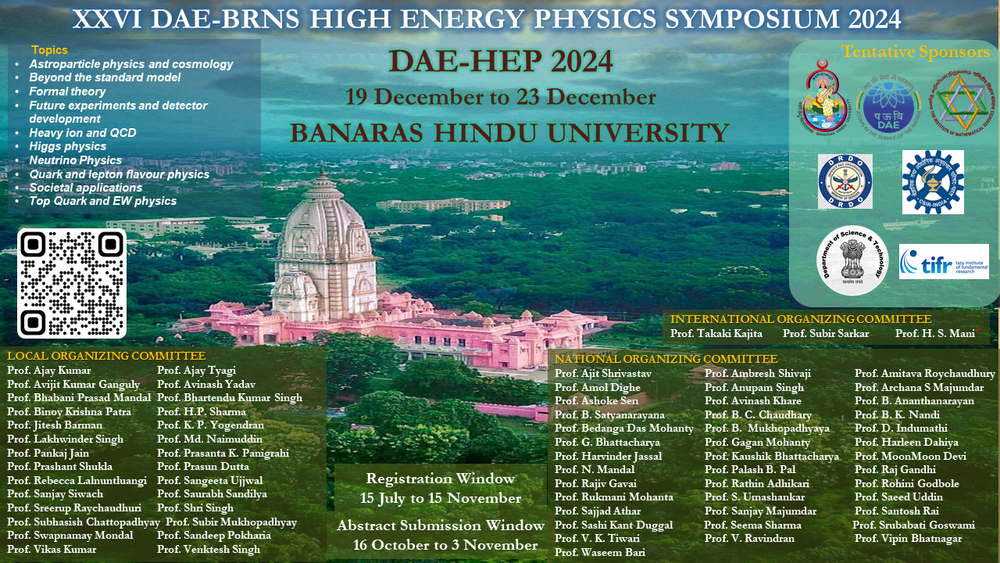Speaker
Description
Neutrinos, elusive subatomic particles, hold significant potential for advancing our understanding of physics. They exhibit minimal interaction with matter and have the ability to transition between various "flavors" as they propagate, a process referred to as neutrino oscillation. The Mikheev-Smirnov-Wolfenstein (MSW) mechanism describes how neutrino flavor evolution is influenced by their interactions with matter, particularly the electron number density. Modifying the matter potential through interactions like flavor-dependent Long Range Force (LRF) alters neutrino oscillations. LRF can be incorporated into the Standard Model by extending it with an additional $U(1)$ symmetry like $L_{e}-L_{\mu}$, $L_{\mu}-L_{\tau}$ or $L_{\mu}-L_{\tau}$, leading to the introduction of a new neutral vector boson, $Z^\prime$, that mediates novel interactions. In our work we assume $Z^\prime$ mediator mass as $ \lesssim 10^{-16}$eV, which could mediate the force between matter in the Sun and neutrinos on the Earth. This study examines the potential contributions of upcoming long-baseline neutrino experiments, such as P2SO and T2HKK, in constraining the parameters of the LRF. Our specific aims are to assess how LRF affects the determination of standard oscillation parameters and to determine the capacity to set limits on the LRF parameters. In addition, we derive the constraints on the mass of the new gauge boson as well as the value of the new coupling constant that governs LRF, based on the matter density of the Sun. Based on our analysis, the P2SO experiment establishes strict constraints on the LRF parameters, specifically mass of $Z^\prime$ and new gauge coupling. Moreover, our results demonstrate that LRF plays a critical role in determination of standard neutrino oscillation parameters including $\theta_{23}$, $\delta_{\rm CP}$, and $\delta m^2_{31}$. It is noteworthy that the precision of $\Delta m^2_{31}$ remains strong and is not impacted by the presence of LRF in the P2SO and T2HKK experiments.
| Field of contribution | Phenomenology |
|---|

